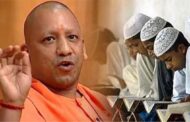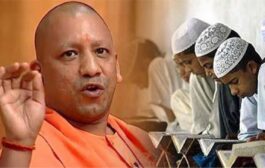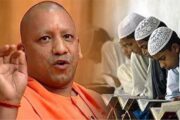Fear is the key to PM’s move against CBI chief, says the leader of the largest Opposition party in Lok Sabha in an exclusive interview, recalling what happened during two meetings of selection panel
 Mallikarjun Kharge is far from impressed at Prime Minister Narendra Modi’s claims to be a crusader against corruption. The Lokayukta Act, he points out, was passed six years ago. But for the last 55 months Prime Minister Modi hasn’t bothered to bring about a small amendment so that ‘leader of the largest Opposition party’ (as opposed to Leader of the Opposition) could be included in the search committee. “It means that your intention is not good,” he said.
Mallikarjun Kharge is far from impressed at Prime Minister Narendra Modi’s claims to be a crusader against corruption. The Lokayukta Act, he points out, was passed six years ago. But for the last 55 months Prime Minister Modi hasn’t bothered to bring about a small amendment so that ‘leader of the largest Opposition party’ (as opposed to Leader of the Opposition) could be included in the search committee. “It means that your intention is not good,” he said.
It is possibly fear that forced PM Modi to go back on his commitment on the Lokpal and it was some kind of fear, he guesses, that made Prime Minister Modi to insist that Alok Verma be removed as CBI Director.
Mallikarjun Kharge on Tuesday, January 15, wrote to the Prime Minister to protest against the appointment of Nageshwar Rao as interim CBI director. The appointment should have been left to the selection panel, he wrote. The Supreme Court, he reminded the PM, had struck down not just the CVC’s recommendation but also DoPT’s action in sending Verma and Asthana on forced leave. The court had also set aside Rao’s appointment and ruled that DoPT did not have any authority of appointment. But the PMO has chosen to flout the apex court’s decision, he pointed out.
In an interview to NH, he declared that it was the Prime Minister who had made up his mind to remove Alok Verma as CBI chief. If the PM had a choice, he would have shifted Verma our on the first day itself of the meeting of the High Powered Committee, he recalls. And it was only because Justice A.K. Sikri agreed to his demand that enough time be given to study the CVC’s report to the Supreme Court on allegations against Verma that the PM relented and agreed to meet again on the next day.
The CVC’s report was handed over to him late at night on January 9 and the three-member committee met again the next day at 4 pm at the Prime Minister’s residence. But despite repeated requests by Mr Kharge for copies of the statement submitted by Alok Verma to the CVC and the supervision report of Mr Justice (Rtd) A.K. Pattnaik , they were not given to him. The PM and his officials would not even agree to share the arguments put forward by Verma to the Supreme Court.
The Prime Minister, recalled Mr Kharge, did not agree to his request that Verma be given a chance to put across his version. The Prime Minister insisted that since Verma had ‘committed a mistake’, he had to go. Justice Sikri also felt that when there were allegations against the Director, he shouldn’t continue.
“I pointed out that nothing had been proved against him and that even the CVC had stated that some of the charges were not substantiated,” said Kharge and exclaimed, “When the report is not clear and is one-sided, why rely on this report?”
The Prime Minister, he recalls, was assisted at the meeting by his Principal Secretary Nripendra Mishra, the Minister of State at the PMO in charge of DoPT (Department of Personnel & Training) Jitendra Singh besides a few Additional Secretaries. Justice Sikri, who represented the Chief Justice of India Ranjan Gogoi, and he himself were there at the meeting unassisted by anyone.
“They wanted to remove him somehow and restore the earlier man. This was clearly in their mind, but they did not disclose whom they would put in charge of the CBI,” he remembers.
He could sense the PMO’s discomfort at the Supreme Court’s judgment and the continuance of Verma as Director.
My sense is that the PM for some reason was apprehensive. There must have been some fear.
Mr Kharge disclosed that he had not planned to submit any note of dissent. He had just carried a note prepared for himself. But after the meeting ended three hours later, he felt a written note of dissent had to be there.
The Prime Minister’s discomfort could be because of the complaint submitted to Alok Verma for a CBI inquiry into the Rafale deal—or because of other cases pending before the CBI. What was, however, clear was that the PMO did not want him in the CBI at any cost.
Regretting the PMO’s refusal to allow Verma to appear before the committee, the Congress leader points out that it now has been proved that CVC K.V. Chowdary had met the CBI director and interceded on behalf of Rakesh Asthana. If the CBI director agreed to withdraw adverse comments against Asthana, there would be no problem and everything would be fine, complained Verma in writing to Justice (Rtd) Patnaik.
“This means that the CVC was prejudiced and could not have prepared a non-partisan report. How could such a report be relied upon to act against the CBI director?” asked the Congress leader.
“My sense is that the PM for some reason was apprehensive. There must have been some fear. I sensed his mood and saw that he wanted to remove Verma in one hour on the same day that he was reinstated,”
Verma’s refusal to withdraw adverse comments against Asthana would have sealed his fate, believes Kharge. It is possible that the PMO believed that Verma could move against the PM also, if necessary, which is why they were in a hurry to get rid of him, he suspects.







































